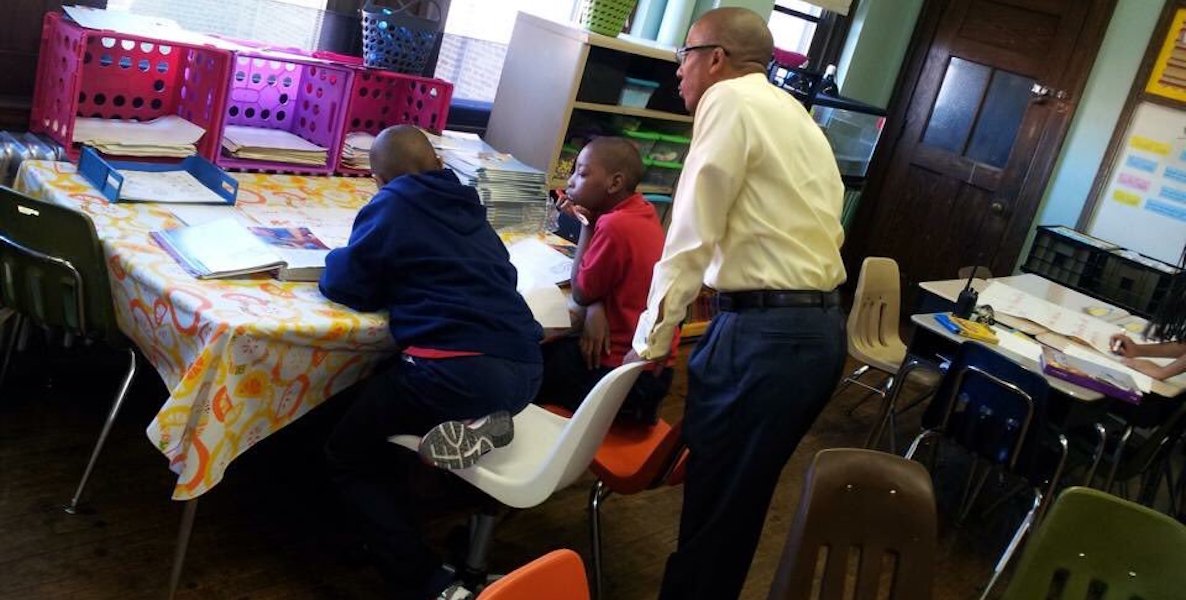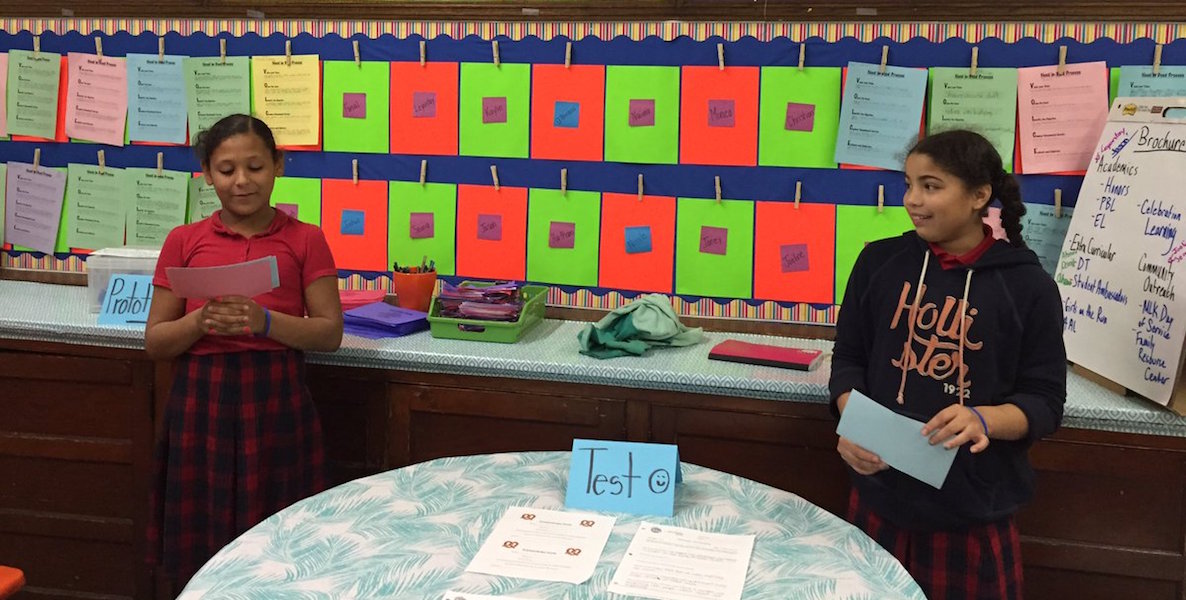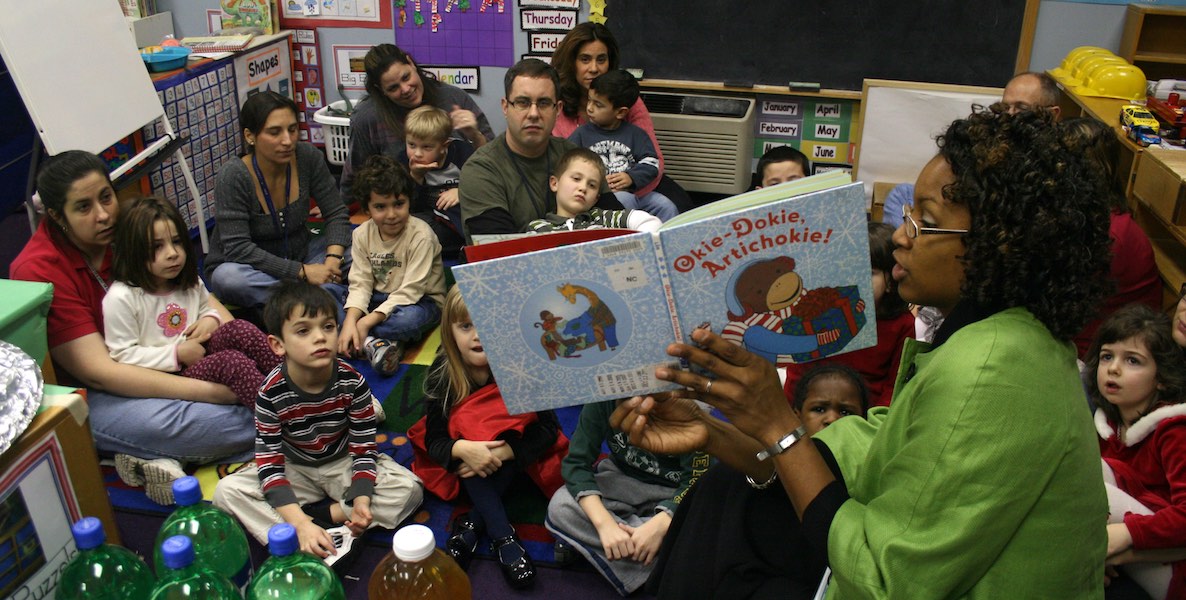On my first day at Carnell Elementary School five years ago, two parents were eagerly waiting to meet with me, to bend my ear about the school’s parent involvement policy. They said that the school had purposely denied them access, had not engaged with them or allowed them to actively participate in the school. While these two parents voiced their own concerns on that day, they were speaking for many parents, who, I eventually learned, felt the same way. They were asking for help. Their stories of being closed out of the school gave me a glimpse into what I was about to face: the wrath of parents.
This would turn out to be one of my most formidable challenges.
Carnell is a neighborhood school. We enroll everyone who lives in the neighborhood. This routine practice is so common that it’s not looked at as a parent engagement opportunity. But it might be one of the most underrated, yet consequential, first steps toward engaging parents in their children’s learning. For example, in addition to registering their children, parents could be given a tour of the school. Students could welcome parents, and highlight the school’s achievements and points of pride from their perspective. Teachers could speak to parents about our instructional program. I could be more accessible to share our vision and accomplishments. Active parents could recruit for the parent organization. By taking any of these steps, our school community would be taking progressive first steps to forging a strong relationship with parents.
Given the ebb and flow of any given school day, I only wish I was doing half of what I just described. Engaging parents is hard work, and a great responsibility. As more and more parents enroll their children in Carnell because of the boundary line instead of the academic and educational missions of the school, the focus on teaching and learning is often lost. I have encountered parents over the years that allow a few negative experiences they had with the school to color their perceptions of Carnell. They don’t always take the time to learn about how they can help the school reach, teach, and engage all of its children.
According to Joyce Epstein of the Johns Hopkins University Center on School, Family and Community Partnerships, one of the nation’s leading experts on parent involvement, there are different types of involvement, ranging from encouraging volunteering and fundraising to providing parents with home-based learning activities. National survey data show that attending school meetings or events is the leading form of parent participation in schools, followed by school fundraising activities.
In a 2012 online survey of parents published in the report “What Parents Want,” officials from the Thomas B. Fordham Institute found that parents’ priorities for school ranged from a strong emphasis on reading and math curriculum to offering specialized programs to close proximity to their homes. My experience and conversations with parents back this up. They are also trying to make sense of how the school fits into their different needs and expectations, and they want schools to help raise their children, solve their children’s behavioral problems, prepare their children for college and careers, and invite them to participate in meaningful school initiatives.
There is very little data on the level and type of parental engagement in schools across the school district. But the school district recently distributed a district-wide survey to measure five key topics related to school success, using research on effective schools and school reform. The percentage of parents at our school who took the survey in 2015 and 2016 was too low to meet the reporting threshold. As a result, despite our school’s best efforts, we are viewed as a school that doesn’t engage parents.
At Carnell Elementary School, we host learning walks, in which parents visit classrooms so they can see firsthand what their children are learning, and post data walls, so students understand learning goals and can talk about them to their parents. We throw frequent celebrations, and hold workshops several times a year.
That may have been true once. But as a part of becoming a district-redesigned school last year, we have prioritized parent engagement. We have launched initiatives school wide that developed our parents’ capacity to productively engage with us and support their children’s learning. For example, we host learning walks, in which parents visit classrooms so they can see firsthand what their children are learning, and post data walls, so students understand learning goals and can talk about them to their parents. We throw frequent celebrations, and hold workshops several times a year. We have built up our community partnerships, and created a valuable Family Resource Center.
Parents are embracing our new approach. Last fall, we issued our own survey, developed by parents for parents, that we handed out during report card conferences to measure parent engagement and their perceptions of Carnell. The most notable feedback showed that 62 percent of respondents strongly agree they are partners with the school in the decisions made about their child. This is a strong performance measure demonstrating that effective parent engagement is happening at Carnell.
One parent, Jennifer Leaman, has turned from a Carnell skeptic to a booster. She has cited a letter I sent out to parents introducing myself and my transition team as an important step. “I’d never experienced that before,” she says. “This was a welcome change! This was a change in philosophy of how parents would be engaged.”
And that has had a trickle-down effect on her children. “I believe that my children have benefited immensely from my engagement as a parent, but not primarily from my involvement in the classroom,” she says. “I think they understand that we have an expectation that they will respect their teachers, pay attention in school, complete their assignments and do their best. My being physically present in the school has allowed me to see firsthand how they are carrying these characteristics out in the classroom, what friends they are choosing, how they are being influenced.”
And the school, in turn, has benefited from the involvement of parents like Mrs. Leaman. Collaborating with them is shaping and reinforcing our school’s vision, mission, and values. It creates buy-in, gets them to trust us, and encourages them to serve as ambassadors for changing false perceptions of what happens in our school.
“Parents are, many times, in awe of the hard work being done by teachers and staff and they are some of the biggest cheerleaders of the school because they’ve seen the worst and the best of what happens there,” said Mrs. Leaman,“and they’re becoming part of the solution.”
Hilderbrand Pelzer III is the principal of Laura H. Carnell School in Oxford Circle. He won the 2014 Lindback Award for Distinguished Principal Leadership, and is the author of Unlocking Potential: Organizing a School Inside a Prison. Pelzer will be contributing regular columns from the school front lines this year.
Header photo by woodleywonderworks via Flickr






